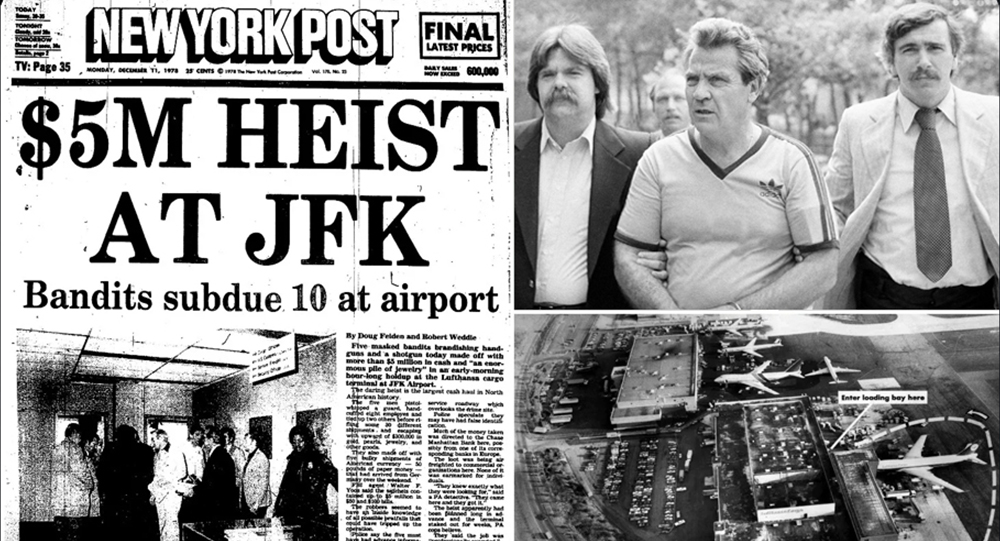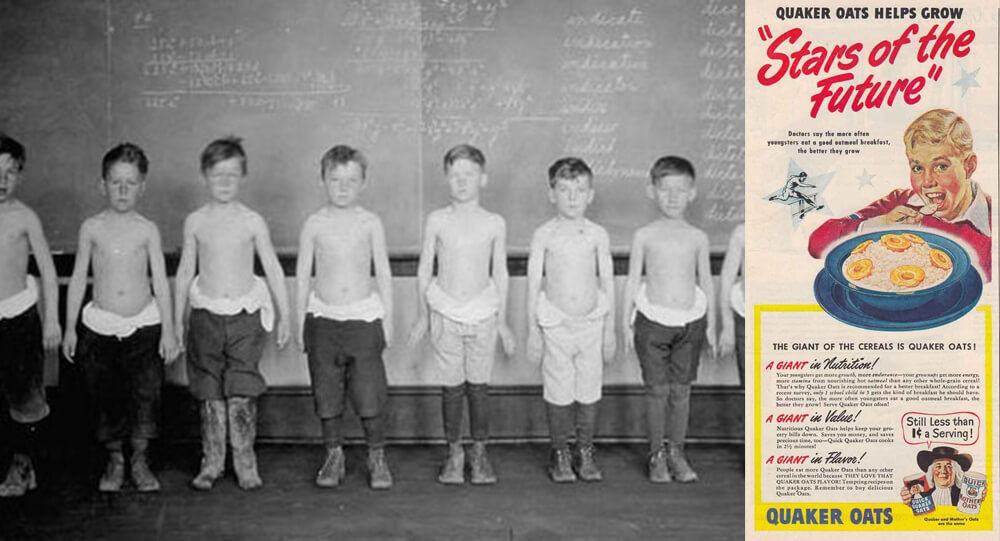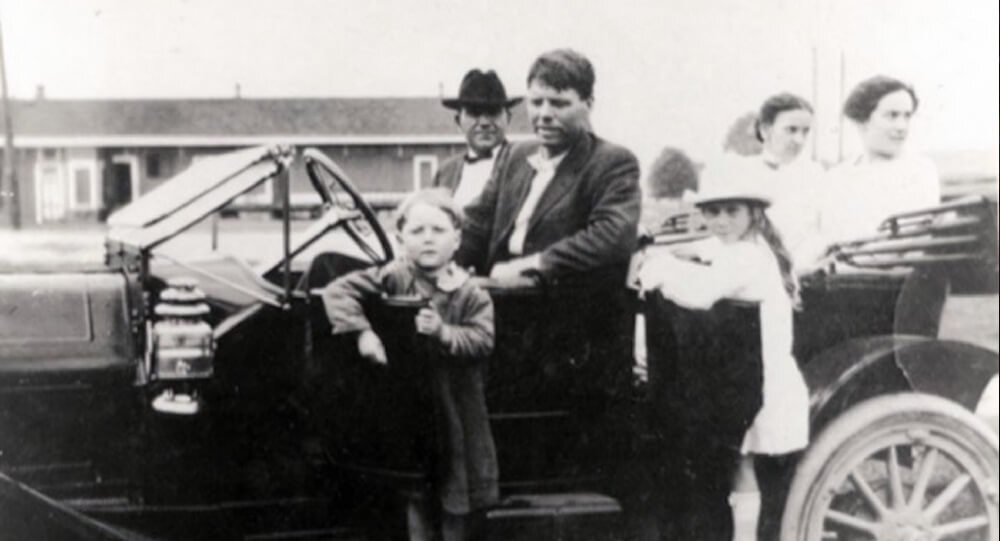
When it comes to the history of true crime, few figures are as disturbing—and as baffling—as Rodney Alcala, a convicted serial killer with a twisted sense of drama and control. Not only did he commit some of the most brutal murders in American history, but during his 2010 trial, he chose to act as his own attorney. What followed was one of the most bizarre legal performances ever seen: Alcala spent five hours on the witness stand interrogating himself, switching between a deep voice for questions and his regular tone for answers.
This surreal episode turned a high-stakes murder trial into a macabre one-man show. It was equal parts chilling, theatrical, and tragically telling of Alcala’s disturbed psyche.
Who Was Rodney Alcala?
Rodney James Alcala was born in 1943 in San Antonio, Texas. On the surface, he appeared to be intelligent and charming. He studied at UCLA’s School of Fine Arts and worked briefly as a typesetter. But underneath this façade lay a predatory monster. Between 1968 and 1979, Alcala is believed to have raped, tortured, and murdered numerous women and girls across several U.S. states. Though he was convicted of seven murders, investigators believe the actual number of victims could be over 130.
One of the more unsettling facts? He once appeared on the popular TV show “The Dating Game” in 1978, during the middle of his killing spree. He even won the game, though the woman later refused to go on the date due to his “creepy vibe.” She may have dodged a bullet—literally.
Acting as His Own Attorney: A Risky, Narcissistic Move
By the time of his 2010 trial in California, Alcala had already been convicted and sentenced to death multiple times. Those earlier convictions had been overturned due to technicalities, leading to a retrial. But rather than let a court-appointed attorney handle the case, Alcala chose to represent himself.
Defendants in the U.S. have the constitutional right to self-representation, but legal experts generally agree: it’s a terrible idea. Trials are complex, and emotional distance—something hard to maintain when you’re the one on trial—is crucial. But Alcala wasn’t interested in legal strategy. He wanted control.
The Five-Hour Self-Interrogation: A Courtroom Like No Other
The most unforgettable part of Alcala’s trial came when he took the witness stand—and began to interrogate himself.
In a monotone yet theatrical performance, he asked himself questions in a deep, altered voice:
“Mr. Alcala, did you kill Robin Samsoe?”
Then he’d respond in his natural voice:
“No, I did not.”
He repeated this act for five long hours, referring to himself in the third person as though he were a separate individual. He alternated between the role of the defense attorney and the defendant, never breaking character.
Courtroom spectators were stunned. Reporters described it as eerie and bizarre, like watching someone perform a psychodrama on stage—except the subject was real-life murder.
Interestingly, Alcala did not display emotion. His delivery was cold, calculated, and completely lacking in remorse. It wasn’t just a legal maneuver—it was a chilling display of narcissism.
The Evidence Was Overwhelming
Despite his courtroom theatrics, Alcala stood little chance of acquittal. The prosecution presented a mountain of evidence, including:
- DNA evidence linking him to multiple crime scenes
- Witness testimony, including that of family members of the victims
- A collection of over 1,000 photos found in a storage locker, many of them disturbing and potentially linked to unidentified victims
The photos—some of which have been made public in hopes of identifying other victims—showed women and children in vulnerable or uncomfortable poses. Several cold cases were reopened after the photos were released.
One of his most well-known victims was Robin Samsoe, a 12-year-old girl abducted on her way to a ballet class in 1979. Her remains were found 12 days later in a remote area. Alcala’s DNA was found at the scene.
A Chilling Fact: He Studied Law in Prison
Alcala wasn’t entirely unprepared for court. During his time behind bars, he studied legal texts and became familiar with courtroom procedures. But rather than making him an effective defense attorney, it seemed to fuel his delusions of grandeur.
His self-interrogation was not legally sound. He asked irrelevant questions, rambled about unrelated topics, and ignored the emotional weight of the crimes. Yet, the court allowed it to proceed—highlighting the U.S. justice system’s commitment to due process, even for someone so deeply depraved.
Conviction and Death
In 2010, Rodney Alcala was convicted of five murders in California and sentenced to death. Later, he was extradited to New York and convicted of two additional murders. Investigators continued to suspect his involvement in dozens more.
He remained on death row until his death in 2021 from natural causes.
Trivia Time: You Won’t Believe This
🔍 Trivia Fact #1: Rodney Alcala is one of the only convicted serial killers in U.S. history to interrogate himself on the witness stand. It remains one of the most bizarre episodes in legal history.
🎥 Trivia Fact #2: Alcala’s appearance on “The Dating Game” was recorded while he was actively murdering women. The episode has since become infamous and is often used as an example of how a charming exterior can hide a horrifying reality.
📸 Trivia Fact #3: Over 100 women and girls found in Alcala’s private photo stash have never been identified. The FBI released some of the photos in 2010, and the case remains open for possible additional victims.
Conclusion: A Killer’s Last Attempt to Control the Narrative
Rodney Alcala’s courtroom behavior was not just bizarre—it was a final act of manipulation. By acting as his own lawyer, interrogating himself, and putting on a five-hour solo performance, he tried to rewrite the narrative of his guilt. But in the end, the evidence—and the horror of his crimes—spoke louder than his theatrics.
His story is a chilling reminder that some killers don’t just want to take lives—they want to control every aspect of how they’re remembered.
And in Alcala’s case, that memory is forever tied to one of the most disturbing courtroom performances ever witnessed.

Recipient of suicide victim's heart kills himself 12 years later
In 1995, Sonny Graham received a transplanted heart from a suicide victim. He then committed suicide in the very same manner as the donor.

Michael Crowe Found 'Factually Innocent' In Sister's Murder
In 1998, 14-year-old Michael Crowe was charged with the murder of his sister. The police started targeting him after he seemed “distant and preoccupied” when his sister’s body was discovered, and during interrogation, police coercion led him to make a false confession. He was later declared factually innocent and the family won a lawsuit of $7.25 million in 2011.

The Horrific story of Ariel Castro and the Cleveland abduction
Cleveland abduction victims Gina DeJesus, Michelle Knight, and Amanda Berry were forced to live in Ariel Castro's house of horrors for 10 years. He raped and beat them until they escaped in 2013.

Chilling Story Behind the Amber Hagerman’s Murder And The AMBER alert system
Amber Hagerman is the reason we have the Amber alert or a child abduction emergency alert system. As of April 2019, 957 children rescued specifically because of AMBER Alert. To this day, the Amber behind Amber alert is still waiting for justice.

Man who robbed bank to get away from wife sentenced to home confinement
In 2017, a 70-year-old man robbed a Kansas City bank, then sat down in the lobby waiting for the Police to arrive stating he’d rather live in jail than with his wife. He was arrested but rather than thrown in a cell he was sentenced to 6 months of home confinement.

Chinese Couple Sell Their Three Children to Play Video Games
A young Chinese couple has sold all their three children in exchange for money to play online games at internet cafes.

The great robbery: 300 million yen robbery
In 1968, a car driven by bank employees was pulled over by a motorcycle cop claiming the car had been rigged with a bomb. The cop got under the car to “defuse” the device. When the car started to smoke, everybody ran. Then the “cop” just drove the car away. The 300M Yen robbery remains unsolved

Reason Behind The Suicide Of Christine Chubbuck Live On Air
Actor Rebecca Hall had serious reservations about tackling the macabre story around why Chubbuck killed herself in 1974. So what changed her mind?

D.B. Cooper: Man who hijacked a plane and jumped out with a $200,000
On November 22, 1971, DB Cooper hijacked a Boeing 727, drank a whisky, smoked a fag, and then jumped out of the plane with $200,000. He was never again seen.

Story of Dennis Lynn Rader, the BTK Killer
Dennis Lynn Rader is an American serial killer known as BTK who worked for a home security company and installed systems in the homes of numerous citizens who were concerned about the murders he himself had committed.

Scientists separated triplets at birth for a controversial experiment and had no idea what they were doing
As part of an experiment, a set of triplets was intentionally separated at birth and given to three sets of parents from different socioeconomic backgrounds. It was discovered in 1980, when two of the triplets attended the same college.

Japanese man accidentally switched at birth grew up in poverty while other baby lived life on privilege
In 2013, a 60-year-old Japanese man found out that he had been accidentally switched at birth. His biological parents were wealthy, but he was given to a struggling, single mother. While the infant who took his place grew up with all the luxuries and became the president of a real estate company, he grew up poor and became a truck driver. He later sued the San Ikukai Hospital in Tokyo that made this awful mistake in 1953.

Albert Einstein’s brain after it was stolen from his body
Albert Einstein's brain was taken by the opportunistic pathologist who performed his autopsy hours after he died and kept in two jars for 30 years. The stolen brain of Albert Einstein was preserved in a cookie jar for 30 years until being discovered by a journalist.

A man faked his death in 2016 after his Mexican wife plotted to kill him by paying a hitman $2,000
In 2016, a guy faked his death after his Mexican wife plotted to murder him by hiring a hitman $2,000. He cooperated with the FBI to create fake murder images, which landed his wife in jail for 20 years.

Man dressed up as his dead mother to keep home, benefits
A 51-year-old man in Brooklyn named Thomas Parkin dressed up as his dead mother Irene for six long years since 2013 and collected her social security checks. He did other real estate frauds too that totaled up to $115,000.

True Story: Russian Pilots Held by Taliban Fought Back and Flew to Freedom
A Russian cargo plane was captured by the Taliban in Afghanistan with Seven crew members aboard. After being held captive in Kandahar for over a year, the crewmen were able to overpower their captors, retake their plane and fly it out of Afghanistan to safety.

Brazilian gang leader attempts to escape from Rio de Janeiro prison by dressing up as his daughter
In 2019, a Brazilian gang leader tried to escape from prison by dressing up as his daughter when she visited him behind bars and walking out of the penitentiary's main door in her place.

The Birth of Stockholm Syndrome: The 1973 Bank Robbery That Changed Psychology
In 1973, a botched bank robbery in Stockholm, Sweden, led to a six-day hostage crisis, where captives began defending their captors—giving rise to Stockholm Syndrome. Strangely, one hostage later befriended a robber, and another raised money for their legal defense, baffling psychologists and law enforcement alike!

The 1978 Lufthansa Heist: Unraveling the Mystery of America's Most Infamous Airport Robbery
During the 1978 Lufthansa heist, robbers infiltrated JFK Airport, restraining employees and holding a night guard hostage. They escaped with $5.9 million—worth over $27 million today. The crime, linked to the Lucchese crime family, remained unsolved for decades, with most suspects vanishing

'Super obedient' lookout parrot trained by Brazilian drug dealers is seized by police
In 2019, police in Brazil seized a 'super obedient' lookout parrot trained by drug dealers. According to reports, the bird had been taught to alert criminals to police operations by shouting: "Mum, the police!" As soon as the police got close, he started shouting.

Quaker Oats Fed Children with Radioactive Oatmeal
In the 1940s and 1950s, Quaker Oats and MIT conducted experiments on radioactive iron and calcium-containing cereal. The diet was part of a study to see if the nutrients in Quaker oatmeal traveled throughout the body. In January 1998, a $1.85 million settlement was reached for 30 victims who came forward.

The truth behind the murder of Cara Knott
After the murder of Cara Knott in 1986, a local news station filmed a ride-along segment with a highway patrol officer named Craig Allen Peyer who talked about women’s safety and gave tips on what to do when stranded on the road. That same officer later turned out to be the “Knotts killer.” He was convicted of the crime in 1988.

The story of Nike's famous tagline "Just do it"
Nike’s inspiration for their slogan “Just do it.” came from a man who was about to get executed, and his final words to the firing squad was “let’s do it!”

Andre Stander: The Police Officer Who Became a Bank Robber
Like scenes from a blockbuster movie, Andre Stander robbed Banks during his lunch breaks and returned to the scene as the lead investigating officer

The Unsolved mystery of Bobby Dunbar's Disappearance
In 1912, a four-year-old boy named Bobby Dunbar went missing on a family trip, 8 months later he was found and reunited with his family. Nearly a century later, DNA testing of his descendants revealed that the child reunited with the Dunbar family was not Bobby, but rather a boy named Charles (Bruce) Anderson who resembled Bobby.


























